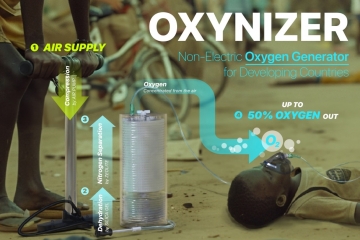KAIST
BREAKTHROUGHS
Research Webzine of the KAIST College of Engineering since 2014
Spring 2025 Vol. 24Zaturi: Create an audiobook for your baby using time that slips by
Zaturi is a system that enables working parents to create an audiobook for their child without compromising regular working hours. It utilizes parents’ micro spare time at work, which otherwise, would likely be wasted.
Article | Spring 2018
A research team at the KAIST School of Computing, led by Professor Junehwa Song and Professor Sung-Ju Lee, in collaboration with IBM Research, has introduced Zaturi, a system enabling parents to create an audiobook for their babies by utilizing micro spare time. Micro spare time is tiny fragments of time with low cognitive loads that frequently occur in our daily lives, such as waiting for an elevator, walking to a different building, waiting for public transportation, and so on. The team showed that putting together micro spare time helps a working parent to build a tangible symbol conveying ones thoughts to the beloved baby and develop one’s own feelings of parental achievement without compromising regular working hours.
Zaturi, developed as a smartphone application, continuously senses the user’s activity and detects micro spare time in real time. Upon every moment of micro spare time detected, Zaturi fetches a new unit of a micro recording subtask that would fit in the micro spare time, helping the user instantly and seamlessly continue the voice recording. Zaturi provides a situation-friendly interface to mitigate the social awkwardness of theatrical reading in public space.
Zaturi is unique in the following ways: (i) building a gift for one’s child, even while at work, without compromising existing working hours but by discovering and carefully arranging new spare time that otherwise would likely be wasted; (ii) not only making use of the parent’s micro spare time in a piecewise manner, but also pursuing incremental creation of a tangible outcome that the child can perceive and enjoy as a whole; and (iii) proposing a widely applicable service to the general population of working parents who commute daily, not only those work-separated over a long distance or across different time zones.
The team implemented a fully working Zaturi system and deployed it to real users. Findings from the user study include the satisfaction of using Zaturi, impact on work productivity, effectiveness of the intervention, and more importantly, parents’ perceptions and self-awareness of micro spare time, which provided implications of other creative ways to utilize micro spare time to increase their participation in parenting.
This work was published and presented at the 20th ACM Conference on Computer Supported Cooperative Work and Social Computing (CSCW 2017) in February of 2017, one of the most prominent conferences in the HCI and Social Computing domain.
Most Popular

When and why do graph neural networks become powerful?
Read more
Smart Warnings: LLM-enabled personalized driver assistance
Read more
Extending the lifespan of next-generation lithium metal batteries with water
Read more
Professor Ki-Uk Kyung’s research team develops soft shape-morphing actuator capable of rapid 3D transformations
Read more
Oxynizer: Non-electric oxygen generator for developing countries
Read more

